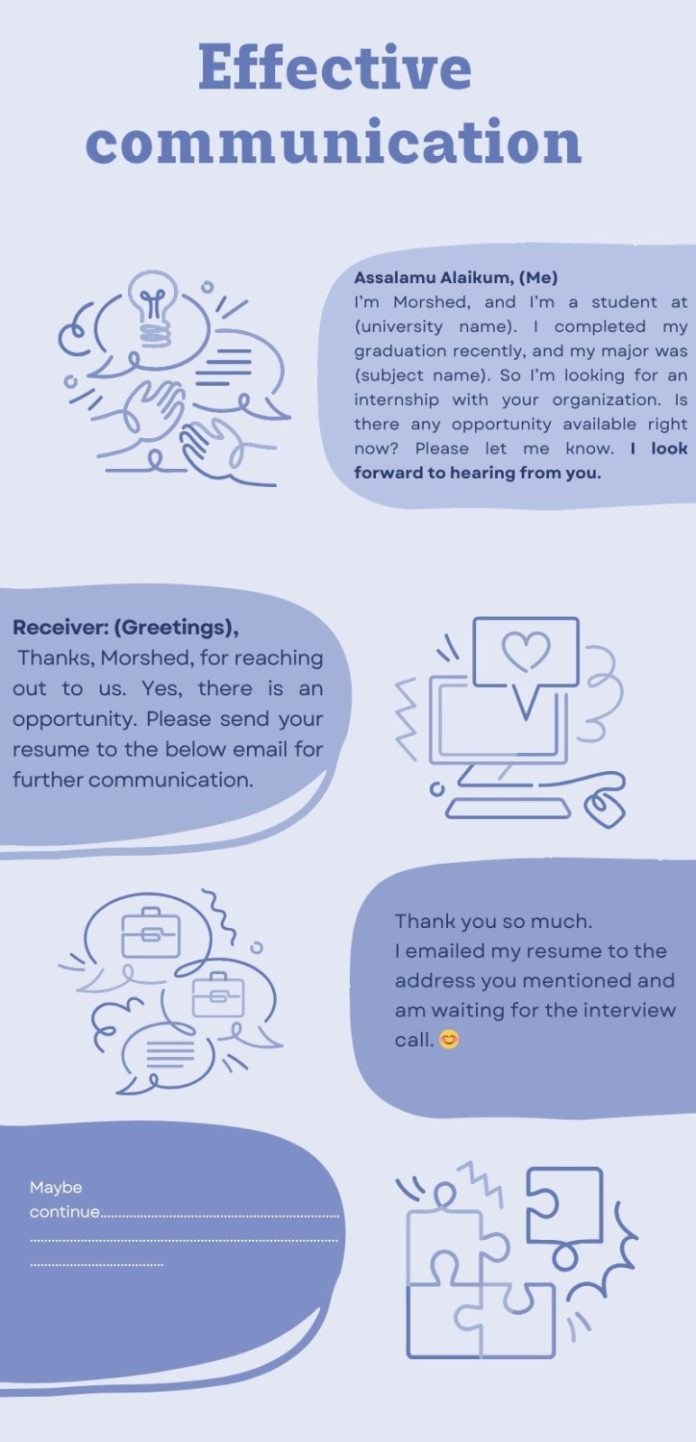Unlocking the Power of Effective Communication in Your Personal and Professional Life
Effective communication is a valuable skill that can set you apart in personal and professional interactions. In fact, my estimate suggests that more than 80% of people could benefit from improving their communication abilities. To help you enhance your communication and receive faster and more meaningful responses, consider the following strategies.
Understanding Effective Communication
Effective communication is the art of conveying ideas, opinions, knowledge, and facts in a way that ensures clarity and purpose in the message. When communication is clear, both the sender and the recipient benefit, leading to more productive and satisfying interactions.
The Power of a Direct Approach
One effective technique for improving communication is adopting a direct approach when sending messages or emails. By doing so, you can increase the likelihood of receiving a prompt response. Here’s how:
1. Begin with a Greeting:
- When initiating a conversation, start with a courteous greeting. This sets a respectful and friendly tone for the interaction.
2. Present Your Query Clearly:
- Instead of waiting for the recipient’s response to your initial greeting, provide all the necessary information and questions in a single message or email. This approach saves time and ensures your message’s clarity.
3. Value Their Time:
- Recognize that professionals often have busy schedules. By presenting your message concisely and directly, you demonstrate respect for their time.
Sample Messages for Improved Response Rates
Consider these professional and concise message templates as examples for various scenarios:
For Inquiring About an Internship:
“Hello,
I’m Morshed, a recent graduate from [University Name], where I majored in [Subject Name]. I’m interested in pursuing an internship opportunity with your organization. Could you please let me know if any openings are available? I eagerly await your response.
Best regards,
Morshed”
For Seeking Information about a Course:
“Hello,
I’m Morshed, a student at [University Name + Batch]. I recently graduated with a degree in [Subject Name]. I’m looking for information about a course you previously took. Your insights would be greatly appreciated.
Thank you,
Morshed”
For Inquiring About a Scholarship:
“Hello,
I’m Morshed, a recent graduate from [University Name + Batch], with a degree in [Subject Name]. I’m interested in the [Scholarship Name] you received earlier. I’ve been searching for reliable information on this scholarship. Your guidance would be invaluable.
When you have the time, please respond.
Warm regards,
Morshed”
Feel free to adapt these templates to your specific communication needs. Remember, clear and direct communication is the foundation for effective interactions, leading to better responses and stronger connections.
If you find this advice helpful, consider sharing it with your network to assist others in improving their communication skills.


